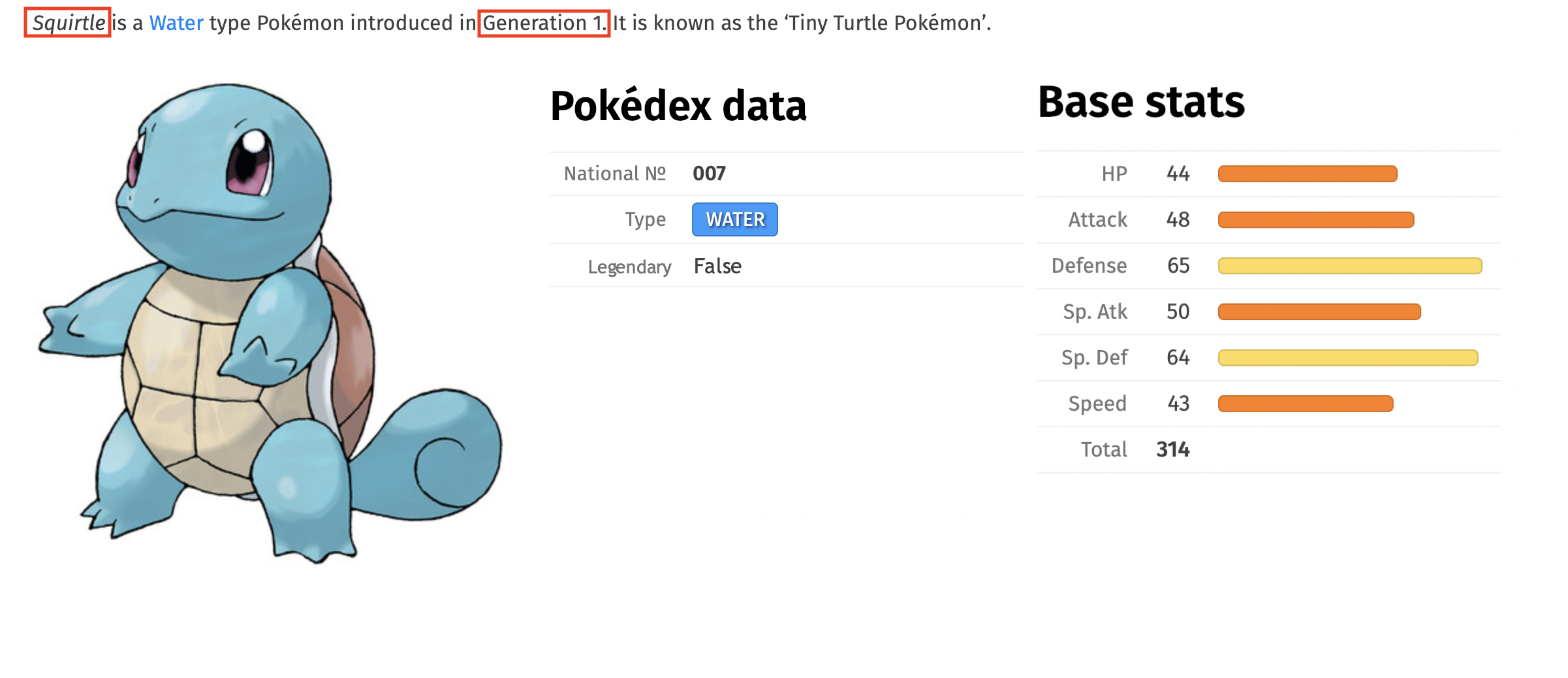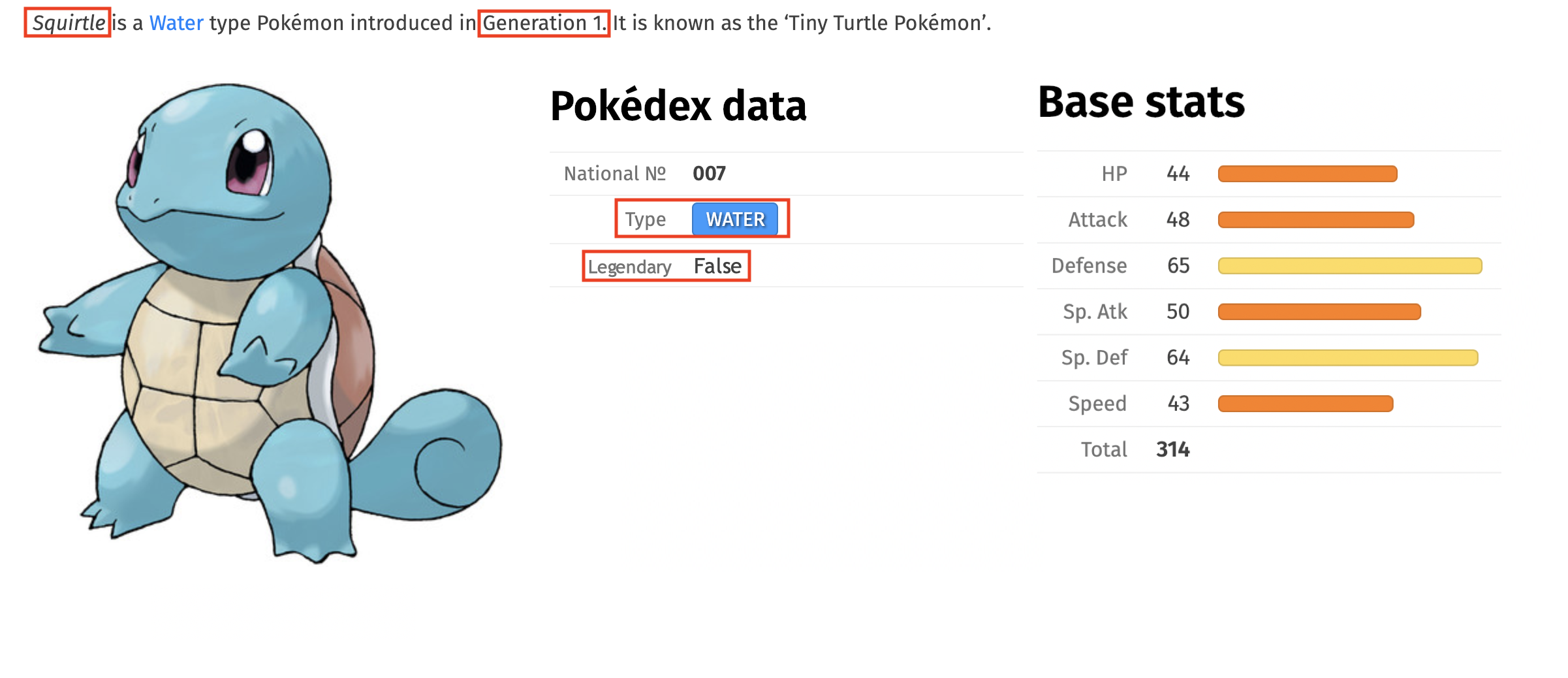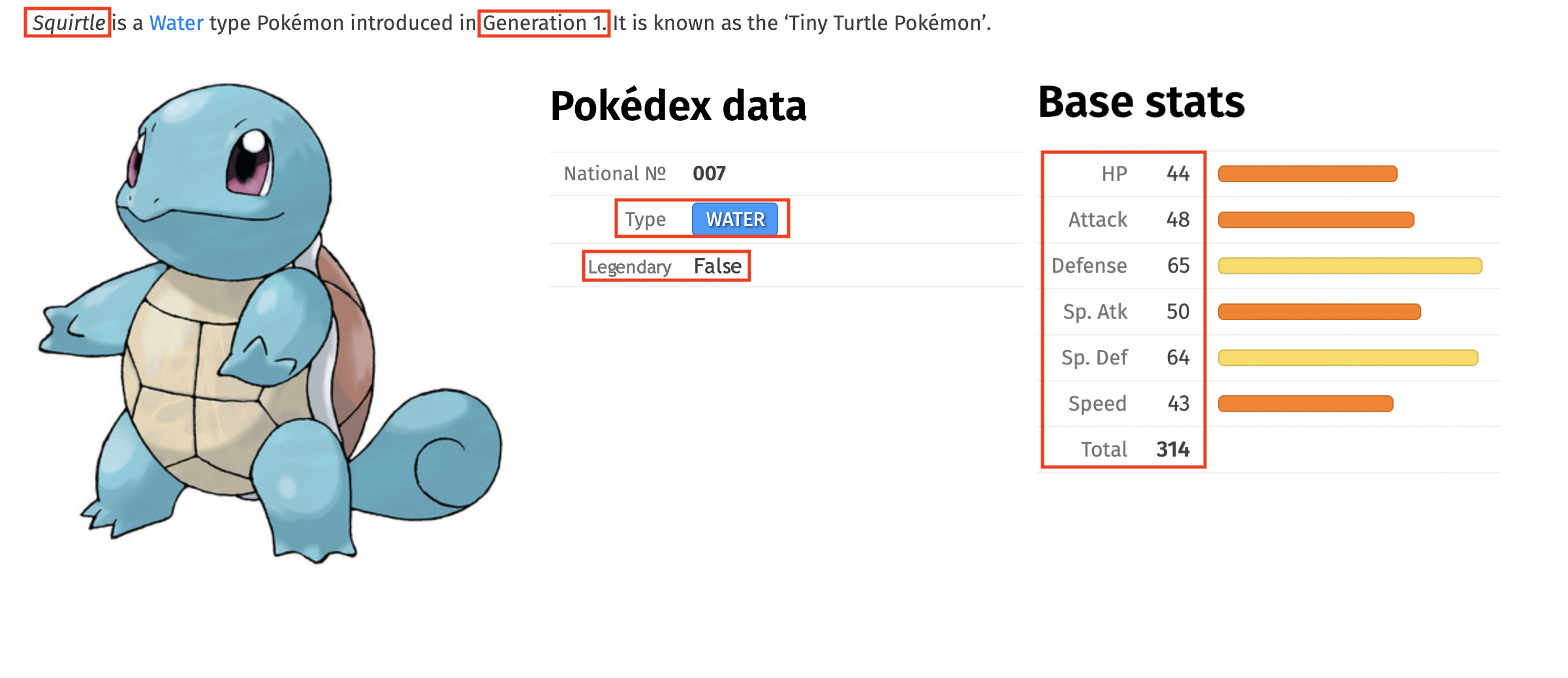Efficiently combining, counting, and iterating
Writing Efficient Python Code

Logan Thomas
Scientific Software Technical Trainer, Enthought
Pokémon Overview
- Trainers (collect Pokémon)

Pokémon Overview
- Pokémon (fictional animal characters)

Pokémon Overview
- Pokédex (stores captured Pokémon)

Pokémon Description

Pokémon Description

Pokémon Description

Pokémon Description

Combining objects
names = ['Bulbasaur', 'Charmander', 'Squirtle']
hps = [45, 39, 44]
combined = []
for i,pokemon in enumerate(names):
combined.append((pokemon, hps[i]))
print(combined)
[('Bulbasaur', 45), ('Charmander', 39), ('Squirtle', 44)]
Combining objects with zip
names = ['Bulbasaur', 'Charmander', 'Squirtle']
hps = [45, 39, 44]
combined_zip = zip(names, hps)print(type(combined_zip))
<class 'zip'>
combined_zip_list = [*combined_zip]
print(combined_zip_list)
[('Bulbasaur', 45), ('Charmander', 39), ('Squirtle', 44)]
The collections module
- Part of Python's Standard Library (built-in module)
- Specialized container datatypes
- Alternatives to general purpose dict, list, set, and tuple
- Notable:
namedtuple: tuple subclasses with named fieldsdeque: list-like container with fast appends and popsCounter: dict for counting hashable objectsOrderedDict: dict that retains order of entriesdefaultdict: dict that calls a factory function to supply missing values
The collections module
- Part of Python's Standard Library (built-in module)
- Specialized container datatypes
- Alternatives to general purpose dict, list, set, and tuple
- Notable:
namedtuple: tuple subclasses with named fieldsdeque: list-like container with fast appends and popsCounter: dict for counting hashable objectsOrderedDict: dict that retains order of entriesdefaultdict: dict that calls a factory function to supply missing values
Counting with loop
# Each Pokémon's type (720 total) poke_types = ['Grass', 'Dark', 'Fire', 'Fire', ...]type_counts = {}for poke_type in poke_types: if poke_type not in type_counts: type_counts[poke_type] = 1 else: type_counts[poke_type] += 1print(type_counts)
{'Rock': 41, 'Dragon': 25, 'Ghost': 20, 'Ice': 23, 'Poison': 28, 'Grass': 64,
'Flying': 2, 'Electric': 40, 'Fairy': 17, 'Steel': 21, 'Psychic': 46, 'Bug': 65,
'Dark': 28, 'Fighting': 25, 'Ground': 30, 'Fire': 48,'Normal': 92, 'Water': 105}
collections.Counter()
# Each Pokémon's type (720 total) poke_types = ['Grass', 'Dark', 'Fire', 'Fire', ...]from collections import Countertype_counts = Counter(poke_types)print(type_counts)
Counter({'Water': 105, 'Normal': 92, 'Bug': 65, 'Grass': 64, 'Fire': 48,
'Psychic': 46, 'Rock': 41, 'Electric': 40, 'Ground': 30,
'Poison': 28, 'Dark': 28, 'Dragon': 25, 'Fighting': 25, 'Ice': 23,
'Steel': 21, 'Ghost': 20, 'Fairy': 17, 'Flying': 2})
The itertools module
- Part of Python's Standard Library (built-in module)
- Functional tools for creating and using iterators
- Notable:
- Infinite iterators:
count,cycle,repeat - Finite iterators:
accumulate,chain,zip_longest, etc. - Combination generators:
product,permutations,combinations
- Infinite iterators:
The itertools module
- Part of Python's Standard Library (built-in module)
- Functional tools for creating and using iterators
- Notable:
- Infinite iterators:
count,cycle,repeat - Finite iterators:
accumulate,chain,zip_longest, etc. - Combination generators:
product,permutations,combinations
- Infinite iterators:
Combinations with loop
poke_types = ['Bug', 'Fire', 'Ghost', 'Grass', 'Water']combos = [] for x in poke_types: for y in poke_types: if x == y: continue if ((x,y) not in combos) & ((y,x) not in combos): combos.append((x,y))print(combos)
[('Bug', 'Fire'), ('Bug', 'Ghost'), ('Bug', 'Grass'), ('Bug', 'Water'),
('Fire', 'Ghost'), ('Fire', 'Grass'), ('Fire', 'Water'),
('Ghost', 'Grass'), ('Ghost', 'Water'), ('Grass', 'Water')]
itertools.combinations()
poke_types = ['Bug', 'Fire', 'Ghost', 'Grass', 'Water']from itertools import combinationscombos_obj = combinations(poke_types, 2)print(type(combos_obj))
<class 'itertools.combinations'>
combos = [*combos_obj]
print(combos)
[('Bug', 'Fire'), ('Bug', 'Ghost'), ('Bug', 'Grass'), ('Bug', 'Water'),
('Fire', 'Ghost'), ('Fire', 'Grass'), ('Fire', 'Water'),
('Ghost', 'Grass'), ('Ghost', 'Water'), ('Grass', 'Water')]
Let's practice!
Writing Efficient Python Code

